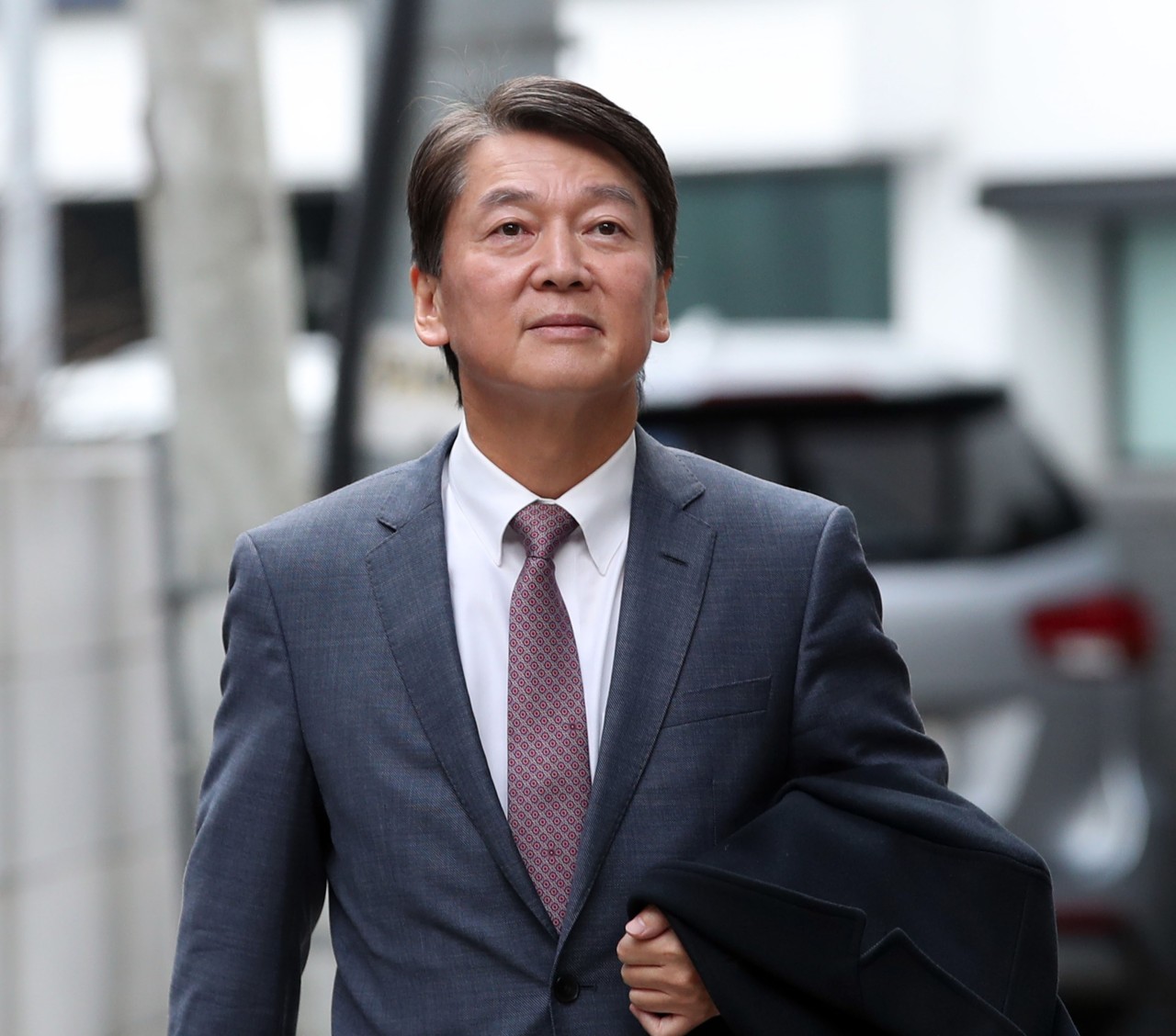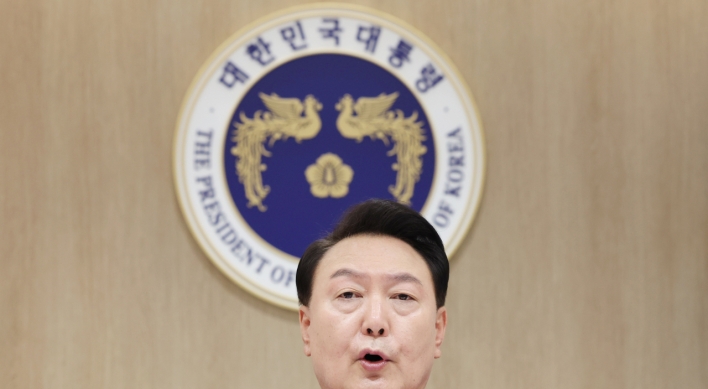Ahn’s ‘new politics’ mantra getting old
Centrist politician talks of a “new politics,” but does he have what it takes?
By Park Han-naPublished : Jan. 30, 2020 - 16:49

Former presidential candidate Ahn Cheol-soo is leaving the political party he co-founded two years ago to embark on a quest, once again, for “new politics.”
In doing so, the entrepreneur-turned-centrist-politician seeks to revive his political fortunes in the April parliamentary elections and attract moderate voters who have grown disillusioned with the endless partisan battle of liberals and conservatives.
French President Emmanuel Macron appears to be his role model now.
“The French people chose Macron, who had no party members at the Parliament, as president. France, like us, was facing deep social distrust due to economic, labor and inequality problems. The French people, who had abandoned their hopes that the two existing major political parties would solve these problems, were concerned about a new future and chose a pragmatic centrist party led by Macron,” Ahn wrote in the epilogue to his recent book.
Ahn, upon his return home earlier this month after more than a year overseas, pledged to present a “pragmatic and centrist” way forward for Korea.
He said the country should move away from the old political order of the liberal ruling Democratic Party of Korea and conservative opposition Liberty Korea Party to give the people hope for the future and find solutions to social problems.
As calls for a new style of politics and a centrist approach are nothing new, questions remain as to whether Ahn will be able to regain his popularity, which was chiefly attributed to a fresh image that made him stand out from established politicians.
Critics have said the luster of Ahn’s “new politics” mantra has faded over the years. He suffered consecutive defeats in the 2017 presidential election and 2018 general elections. Also in 2018, his center-left opposition People’s Party and the center-right Bareun Party merged to create the minor opposition Bareunmirae Party.
Another challenge that Ahn faces is the absence of a political stronghold.
Analysts believe the Jeolla provinces, where the People’s Party swept the 2016 general elections, won’t offer enthusiastic support to Ahn in the upcoming elections, as the ruling Democratic Party appears to have regained much of its traditional support base there.
On Jan. 20, the day after his return to Korea, Ahn visited the May 18th National Cemetery in Gwangju, stirring up speculation he was reaching out to liberals in the Jeolla region.
The timing for the emergence of an alternative political force to challenge the traditional left-right rivalry seems to be impeccable.
According to weekly surveys conducted by Gallup Korea, an increasing number of respondents who self-identify as moderates show no partisan leanings.
Among moderate voters, those who said they did not support any party accounted for 31 percent in a survey conducted in the third week of January, up from 20 percent in the first week of September last year.
That figure surged when two incidents were in the news that sparked clashes between the two major parties. One was the scandal surrounding former Justice Minister Cho Kuk, who faces accusations that scholastic perks were inappropriately granted to his daughter. The other was conflict over legislation dealing with electoral and prosecution reform.
“As political polarization deepens, the number of people who do not like the ruling party or the opposition party is increasing,” said Kim Hyung-joon, a professor at Myongji University.
Still, time is running short for Ahn, as he is widely expected to create a new party after his attempt to rebuild the Bareunmirae Party fell through Wednesday.
Gathering enough candidates for the general elections in less than three months is a tall order.
Six out of seven lawmakers from the Bareunmirae Party, all known supporters of Ahn, were elected as proportional representatives, meaning they would lose their seats if they were to leave the party.
Given the lack of a stable base of support from the public and within his party, Ahn’s next step after creating a group is to gain more attention as moves for a political realignment are now underway.
Some political watchers are cautiously raising the possibility that Ahn could join a committee launched by the Liberty Korea Party and the New Conservative Party to pursue integration among centrists and conservatives.
By Park Han-na (hnpark@heraldcorp.com)



















